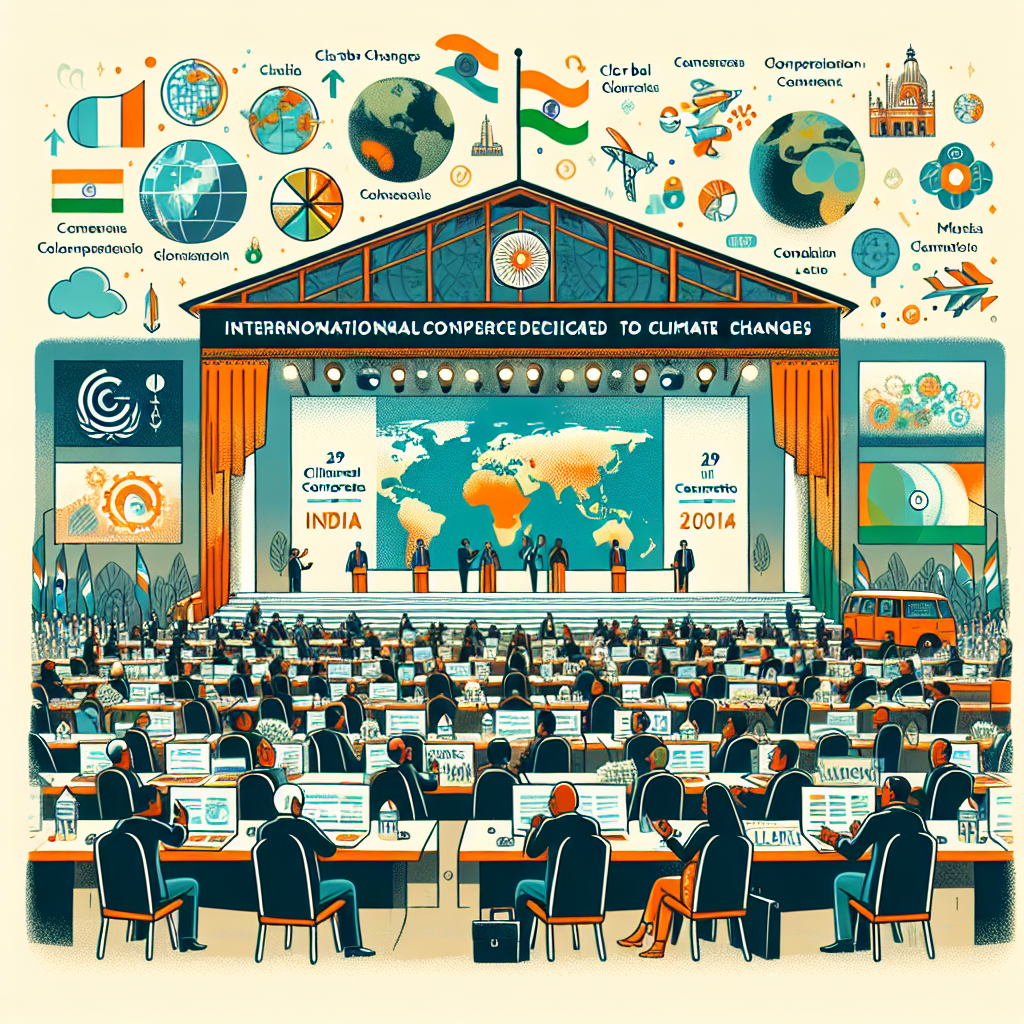COP29: India’s leadership, carbon market challenges, and global stances ByAparajitha Nair Nov 30, 2024 05:00 PM IST Share Via Copy Link This article is authored by Aparajitha Nair. The 29th Conference of the Parties (COP29) in Baku, Azerbaijan, underscored both the promise and the perils of international climate diplomacy. Held at a time when the effects of the climate crisis are becoming increasingly severe, COP29 sought to advance the goals of the Paris Agreement, focusing on mechanisms such as carbon trading and scaling up financial support for developing nations. India played a pivotal role in advocating for equitable climate solutions, demonstrating leadership through its domestic policies and international stance. However, the conference was also marked by contentious debates over carbon trading, exposing critical flaws in the system, and by stark divisions among participating countries regarding their commitments and priorities. Flags fly near a venue of the COP29 United Nations climate change conference, in Baku, Azerbaijan. (REUTERS) India’s presence at COP29 was characterised by assertive leadership and a call for justice in climate action. As a major developing country grappling with the dual challenges of economic growth and environmental sustainability, India’s interventions highlighted the need for equitable climate finance and the fulfilment of long-standing commitments by developed nations. India reiterated its position that public climate finance from developed countries should cover the costs imposed on developing nations by deviations from the least-cost development pathways. This approach recognises the historical responsibilities of industrialised nations, which have contributed disproportionately to global emissions, and calls for an equitable redistribution of resources to support vulnerable economies. India’s efforts are also aligned with its updated Nationally Determined Contributions (NDCs), which emphasise renewable energy expansion, large-scale afforestation, and a gradual shift away from fossil fuels. On the global stage, India has emerged as a champion of South-South cooperation in climate action. Initiatives such as the International Solar Alliance (ISA) and the Coalition for Disaster Resilient Infrastructure (CDRI) illustrate India’s commitment to fostering partnerships among developing countries to tackle climate challenges collectively. At COP29, India advocated for stronger international collaboration while criticising unilateral measures such as carbon border adjustment mechanisms, which risk transferring financial burdens onto developing economies. By framing climate action as a shared responsibility rooted in mutual trust and equity, India positioned itself as a leading voice for the Global South. However, the progress made at COP29 in operationalising carbon markets under Article 6 of the Paris Agreement exposed significant flaws in the system. The adoption

